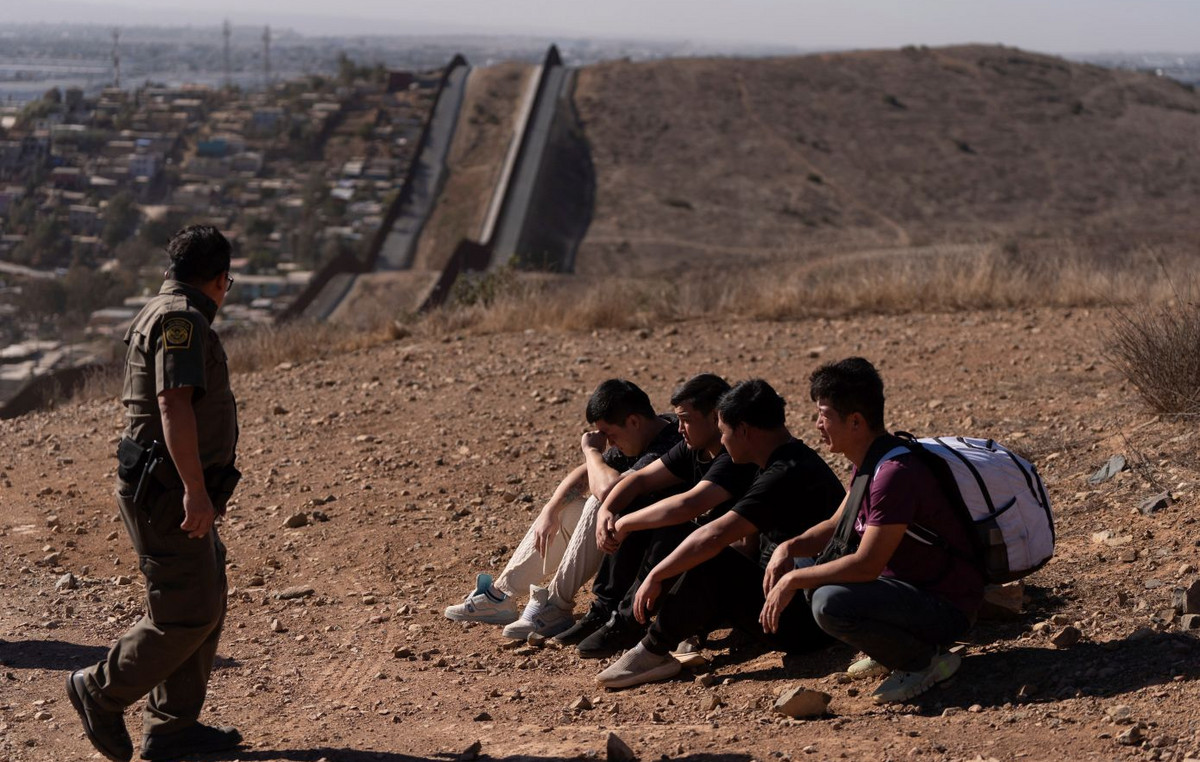The candidates for the Republican candidacy in the United States elections face each other in the second preview of their nomination process, this Tuesday (23), in the state of New Hampshire.
This time, Democratic voters will have their own caucus – a battle that is expected to be significantly less competitive.
The New Hampshire primary comes eight days after the Iowa Republican caucuses, which were dominated by former President Donald Trump.
His competitors are eager to prove that their candidacies are still viable despite Trump's nearly 30 percentage point victory in Iowa.
How does the New Hampshire caucus work?
The New Hampshire caucus takes place this Tuesday (23), with the exact time depending on the voting location.
Unlike Iowa and some other states, which rely on a relatively complicated “caucus” system, voters in New Hampshire vote the same way they would in any other poll.
On the Republican side, 22 delegates to the Republican National Convention are up for grabs and will be awarded on a proportional basis.
While this is a small portion of the 1,215 delegates needed to secure the candidacy, the state has traditionally played an outsized role in the nominating process due to its top spot on the calendar.
For Democrats, 33 delegates will be sent by New Hampshire to the Democratic National Convention, which will take place during the summer in the Northern Hemisphere.
However, the votes of the state's delegates during the Convention – which will officially decide the Democratic candidate – will not be officially linked to the results of this Tuesday's caucus.
In a revamp of its electoral calendar, the Democratic Party moved its first caucus of 2024 to South Carolina.
The decision was intended to better reflect the party, as South Carolina is a significantly more diverse state than New Hampshire's nearly 90% white population.
Democratic voters will vote this Tuesday (23) only because New Hampshire state law requires it to host the first primary, and the state government – controlled by Republicans – has refused to make any legislative changes to the date of the primary.
Thus, in practice, the New Hampshire primaries will serve purely as a barometer of support for Democrats in the race.
Who will be on the ballot?
The main Republican candidates on the ballot will be Trump, Florida Governor Ron DeSantis and former US Ambassador to the UN Nikki Haley. DeSantis and Haley placed second and third in Iowa, respectively.
The leading Democratic candidates on the ballot are U.S. Rep. Dean Phillips of Minnesota and self-help guru Marianne Williamson.
Democratic President Joe Biden is running for re-election but is not on the ballot because of the dispute over the date of the primaries.
Some of his supporters, however, have launched a campaign to get people to write Biden's name on the ballot when voting.

Who is winning?
According to research and analysis website 538, Trump leads the Republican field in New Hampshire, with 43% of likely primary voters planning to vote for the former president.
Haley is in second place with 30% support, and DeSantis is in third place with about 6% support.
The race may be tighter than it appears, however. Former New Jersey governor Chris Christie, an acerbic Trump critic who campaigned heavily in New Hampshire, dropped out of the race in early January, a fact not reflected in the most recent polls. The majority of her supporters are expected to switch their vote to Haley.
The state is known for its relatively moderate and libertarian-minded brand of republicanism. Additionally, the primaries in New Hampshire are “semi-open,” meaning voters who are not registered with any party can participate, which could help candidates considered centrist.
Biden is winning handily among Democrats, although polls have been wildly inconsistent, with support for Phillips, his closest competitor, in the single digits to a little over 20 points, depending on the pollster.
The fact that Biden supporters will have to write his name on the ballot box adds another element of uncertainty.
what is at stake? This matters?
On the Republican side, most political analysts agree that New Hampshire presents Trump's competitors with the best opportunity to pull off a victory — or at least a close second.
This is particularly true in the case of Haley, which has gained significant momentum in the state in recent months.
If Haley fails to challenge Trump, the former president could emerge as the presumptive Republican nominee to face Biden in the November general election.
If Haley does well, she will likely retain enough interested donors and voters to mount a credible challenge in the weeks ahead.
Even if Trump loses, his competitors will face an uphill battle. The former president leads by about 30 percentage points in Haley's home state of South Carolina, where the next big nominating contest will take place in late February.
Nationally, Trump holds a 37-point lead, according to the most recent Reuters/Ipsos poll.
New Hampshire represents an opportunity for Biden's Democratic challengers to prove there is appetite among voters to replace the party's incumbent.
Biden has devoted most of his energy to South Carolina, home of his party's first fully sanctioned race and where support from the state's Democrats helped him secure the 2020 nomination.
*With information from Gram Slattery
Source: CNN Brasil
Bruce Belcher is a seasoned author with over 5 years of experience in world news. He writes for online news websites and provides in-depth analysis on the world stock market. Bruce is known for his insightful perspectives and commitment to keeping the public informed.







